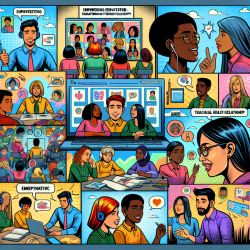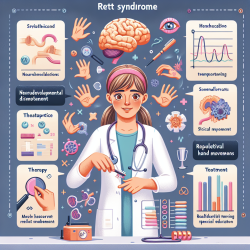Introduction
In the ever-evolving landscape of education, the mental well-being of students has become a focal point for educators and policymakers alike. With mental health challenges on the rise among children and adolescents, schools are increasingly viewed as pivotal platforms for mental health interventions. A recent study titled Qualitative Evaluation of the Impact of a School Mental Health Literacy Curriculum on Student–Teacher Relationships sheds light on the transformative potential of Mental Health Literacy (MHL) programs in schools.
The Study: A Closer Look
The study, conducted across middle schools in diverse regions, explored the impact of an MHL curriculum on student-teacher relationships. Through focus groups with educators, the research highlighted several positive outcomes. The MHL curriculum not only improved mental health knowledge but also fostered deeper connections between students and teachers. This was achieved by creating a common language around mental health and encouraging vulnerability and empathy in classroom interactions.
Key Findings
- Opened Conversations: The curriculum facilitated meaningful discussions about mental health, breaking down barriers and reducing stigma.
- Increased Vulnerability: Both students and teachers felt more comfortable sharing personal experiences, which strengthened mutual understanding.
- Developed Language: Students gained the vocabulary needed to articulate their mental health experiences, leading to more open and supportive environments.
- Improved Rapport: Enhanced communication and empathy resulted in stronger student-teacher relationships.
- Increased Empathy and Advocacy: Students became more empathetic and proactive in seeking help for themselves and their peers.
Implications for Practice
For practitioners, the findings underscore the importance of integrating MHL programs into school curricula. By doing so, educators can create a supportive environment that not only addresses mental health challenges but also enhances educational outcomes. The study suggests that MHL programs can be particularly effective when implemented as part of a multi-tiered support system, which can maximize their impact on student well-being.
Encouraging Further Research
While the study provides valuable insights, it also highlights the need for further research, particularly in diverse educational settings. Practitioners are encouraged to explore how MHL programs can be adapted to fit the unique cultural and contextual needs of their schools. By contributing to this growing body of research, educators can play a crucial role in shaping the future of mental health support in schools.
To read the original research paper, please follow this link: Qualitative Evaluation of the Impact of a School Mental Health Literacy Curriculum on Student–Teacher Relationships.










